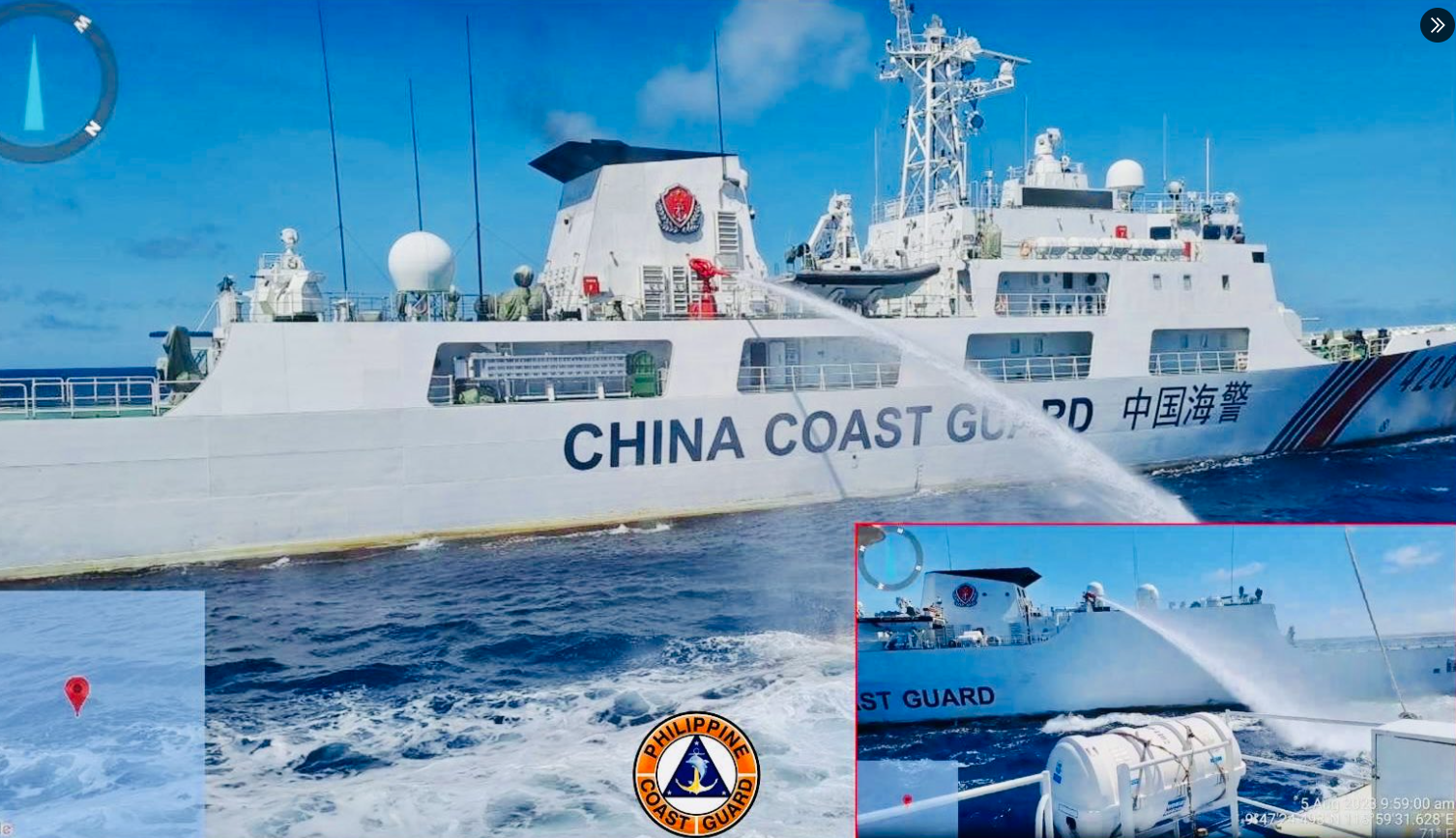The US State Department issued a strong condemnation on Sunday in response to China’s aggressive actions against the Philippines in the South China Sea. China had reportedly employed water cannons to block Filipino maneuvers in the region.
In a press statement, the US State Department emphasized that an armed attack on Philippine public vessels, aircraft, and armed forces, including the Coast Guard, would trigger the US-Philippines Mutual Defense Treaty’s Article IV. This mutual defense commitment was reaffirmed to China, warning of potential consequences.
The US expressed solidarity with its Philippine allies, particularly regarding China’s Coast Guard and maritime militia’s actions that obstructed a Philippine resupply mission to Second Thomas Shoal on August 5. The statement pointed out that China’s use of water cannons and dangerous maneuvers had interfered with the Philippines’ lawful exercise of high seas freedom of navigation, endangering the safety of both vessels and crew.
The US State Department asserted that China’s actions challenge the established status quo in the South China Sea and are inconsistent with international law. It highlighted that these actions pose a direct threat to regional peace and stability.
The statement further criticized China’s interference with lawful Philippine maritime operations, particularly the supply mission to Second Thomas Shoal. It emphasized that an international tribunal’s legally binding decision from July 2016 had invalidated China’s claim to the maritime area around Second Thomas Shoal, firmly locating it within the Philippines’ exclusive economic zone.
The US urged China to respect the 2016 arbitral ruling and uphold the freedom of navigation as defined by the United Nations Convention on the Law of the Sea (UNCLOS).
In response to the incident, various international diplomats and envoys also voiced their concerns. The Japanese Ambassador to Manila, Koshikawa Kazuhiko, strongly supported the Philippines’ stance in upholding maritime order based on UNCLOS and the 2016 Arbitral Award. The European Union Ambassador to Manila, Luc Veron, expressed his concern about the dangerous actions in the South China Sea and reiterated the EU’s support for the 2016 arbitration.
The Australian Ambassador to Manila, Hae Kyong Yu, echoed the call for peace, stability, and respect for UNCLOS, emphasizing the importance of maintaining a rules-based international order.
Earlier reports detailed how China had blocked and used water cannons against a chartered supply boat en route to Ayungin Shoal for a routine troop rotation and resupply mission. The Philippine Coast Guard (PCG) strongly condemned these actions, considering them excessive and offensive.
China’s actions have sparked international outrage and renewed concerns about the situation in the South China Sea.
Also Read: J&K: Army Thwarts Infiltration Attempt on LoC in Poonch; Search Operation Underway




![]Newly elected Pope Leo X](https://www.newsx.com/wp-content/uploads/2025/05/Pope-Leo-XIV-AI-Church-Robert-Francis-Prevost-American-Pontiff-Vatican-City-300x169.webp)


















